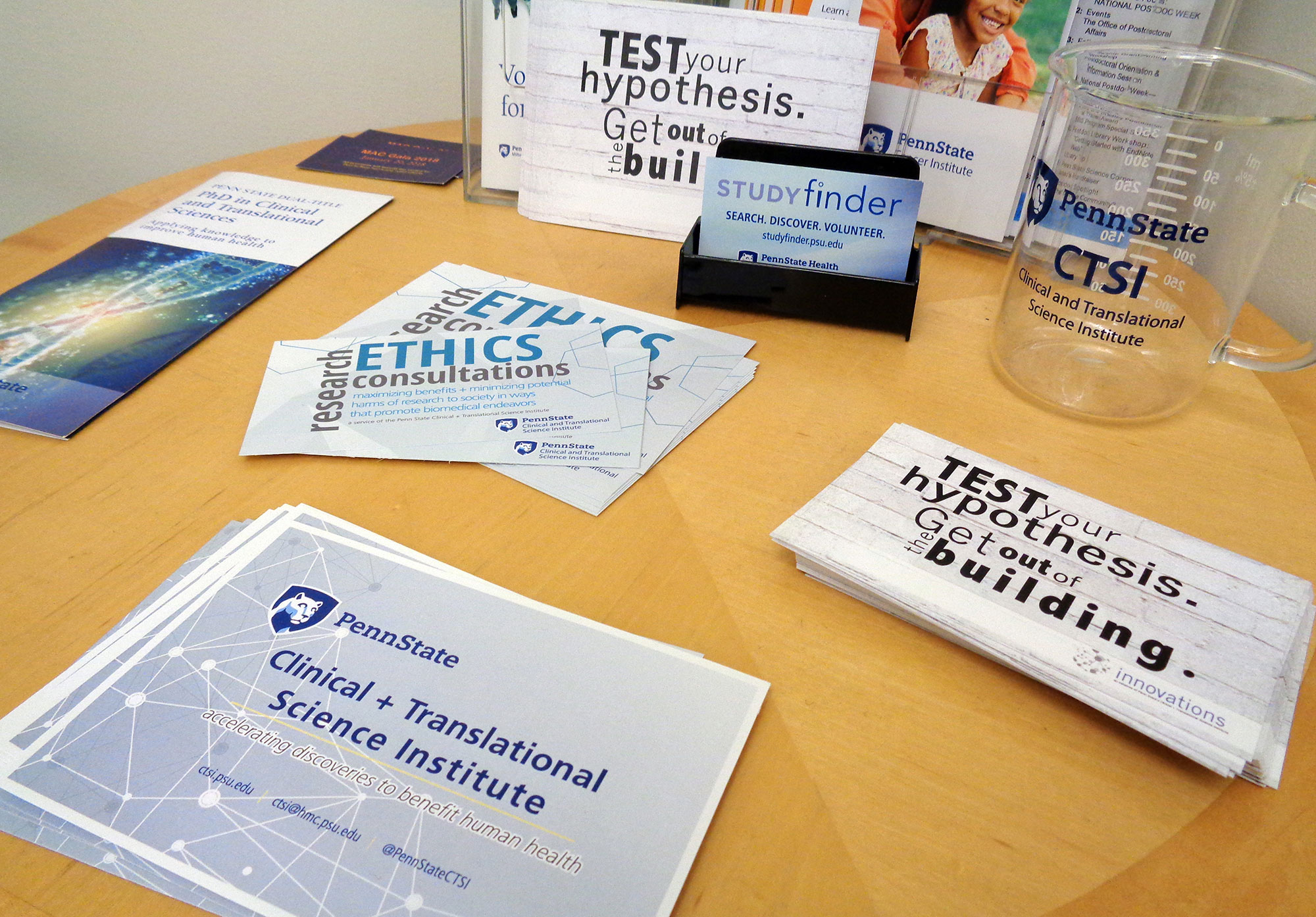Q&A with Susan Mohammed, new Clinical and Translational Science Institute team member

Susan Mohammed, PhD, recently joined Penn State Clinical and Translational Science Institute as team science lead, Community Engagement and Team Science Core. To request a consultation with the core, complete a service request form.
What is your role at the institute?
My role is to promote interdisciplinary team collaboration across the translational spectrum through education, consultation and research. In terms of education, I plan to provide presentations on team-related topics as part of the Bench to Bedside and Beyond seminars and the TL1 and KL2 curricula. I also plan to build an online toolkit for Penn State faculty and students who desire ready access to practical, pertinent team knowledge. An array of helpful interventions will be featured, including team charters and team debriefs. Through education and consultation, I want to be able to support interdisciplinary teams across their life cycle from formation to launch to maturation.
What is team science?
Team science is scientific and interdependent collaboration by three or more individuals that occurs within a complex milieu of social, institutional, technological and political contexts.
What is your research focus?
I research the cognitive architecture of teams. Because people enter a team with different abilities and functional backgrounds or areas of expertise, there is tremendous potential for innovative knowledge to be created, especially in scientific teams. Regrettably, however, this potential may not be realized because team member knowledge is squandered and not leveraged to its fullest use. Diversity is part of the beauty of a team because different perspectives can merge to be greater than the sum of the individual parts. However, knowledge diversity must be unified by team members “getting on the same page” regarding what to do, how to do it, and when work will be accomplished.
I also research team composition/diversity and have studied the mix of personal characteristics in a team, including cognitive ability, experience, demographics and personality traits. I am particularly interested in time-based individual differences such as time urgency and pacing styles. For example, some people are chronically hurried whereas others are relaxed about time. Some individuals are energized by waiting until the last minute whereas others prefer to work steadily over the course of a project or start working on tasks long before deadlines.
How does temporal orientation affect teams?
The reality is that individuals enter teams with different temporal orientations, which can be complementary and/or conflict-inducing. On the one hand, a mix of pacing styles may be well suited for complex tasks that allow early action members to start projects, those with a steady style to maintain project momentum, and those with a deadline style to finish. On the other hand, diversity on pacing styles can also cause conflict as members follow different work priorities that are inconsistent with each other. Our research shows that whether temporal differences are helpful or harmful in teams depends on factors such as leadership and shared cognition.
How can the future toolkit help teams?
The toolkit will offer practical interventions to not only set teams up for success but help them maintain a positive trajectory throughout their life cycle. Scientists are obviously highly intelligent, but their training may not prepare them to communicate and collaborate in a team science environment. How do you harness valuable discipline-specific knowledge and enhance it with team skills that cause different areas of expertise to integrate into new, innovative knowledge? The whole point of a team is to get beyond individual outputs to achieve collective outcomes that are greater than the sum of the parts. This never happens in a lot of teams, which is a tremendous loss, especially when scientific breakthroughs with health and wellbeing implications are at stake. A toolkit can help teams have easy access to interventions that can help them develop the team dynamics that facilitate productivity and creativity.
If you're having trouble accessing this content, or would like it in another format, please email the Penn State College of Medicine web department.
